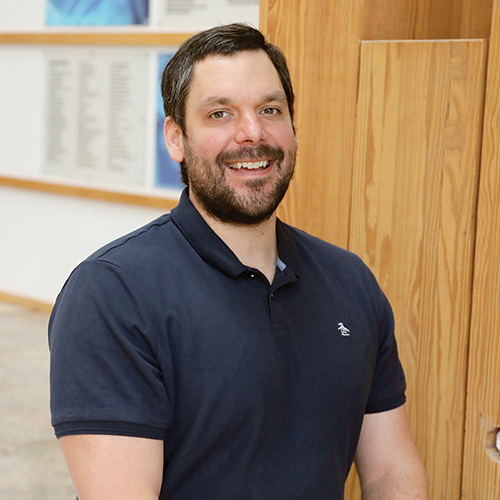Huntsville, Ala. — An acorn worm genome assembled in the Genome Sequencing Center at the HudsonAlpha Institute for Biotechnology is helping researchers understand more about the 570 million year evolution of gills into the human pharynx and jaw. Those conclusions were published online Nov. 18 in Nature.
“We were asked to join the project because of our expertise and experience with genome assembly,” said Jeremy Schmutz, a faculty investigator at HudsonAlpha who co-directs the Genome Sequencing Center (GSC). “We were able to improve the contiguity of the sequences, and we’re pleased that the research team could use the two genomes to learn more about evolutionary development.”
The newly assembled acorn worm genome clarifies the evolutionary development of pharyngeal slits for filter feeding to gills for extracting oxygen from water to today’s human upper and lower jaw and pharynx.
Jerry Jenkins, PhD, the genome analysis group leader in the GSC, worked with Schmutz on piecing together the Saccoglossus kowalevskii genome, and he is one of the co-authors for the paper.
“Acorn worms are hard to raise in captivity, making them difficult to observe or study,” Jenkins said. “It was challenging for us to assemble and produce the acorn worm genome, and overall we were very satisfied with the results.”
Schmutz and Jenkins collaborated with Kim Worley, PhD, and her team at the Baylor College of Medicine, who sequenced and performed a preliminary assembly for the acorn worm.
“The GSC team crafted a high quality assembly that allowed us to study the conserved gene linkages between this worm and other species,” said Dan Rokhsar, PhD, one of the leaders for the sequencing effort and a co-leader with John Gerhart for the project.
Rokhsar is the chief informatics officer and eukaryote super program head at the Department of Energy Joint Genome Institute. He is also a professor at UC Berkeley and the Okinawa Institute of Science and Technology (OIST) Graduate University in Japan.
Oleg Simakov of OIST and Takeshi Kawashima of the University of Heidelberg in Germany are first authors of the paper. The research group included 61 scientists from UC Berkeley; the Okinawa Institute of Science and Technology (OIST) Graduate University in Onna, Okinawa, Japan; Stanford University’s Hopkins Marine Station; the Baylor College of Medicine in Texas; the HudsonAlpha Institute for Biotechnology in Huntsville, Alabama; and the University of Oxford in the United Kingdom.
About the Genome Sequencing Center: The Genome Sequencing Center (GSC) produces, analyzes and interprets genomic data on economically important species to improve crop breeding and other agricultural practices. Co-directed by Jeremy Schmutz and Jane Grimwood, PhD, the GSC is one of the few centers in the world performing de novo sequencing of complex plant genomes. The center has sequenced over 100 species and is focused on genomes related to food production and renewable biofuel research. Research at the GSC in the field of bioenergy supports initiatives related to clean energy generation, improving biomass yield and the efficiencies of processes used to convert plant materials into liquid fuels. To learn more about the Genome Sequencing Center, visit: http://www.hagsc.org/
About HudsonAlpha: HudsonAlpha Institute for Biotechnology is a nonprofit institute dedicated to innovating in the field of genomic technology and sciences across a spectrum of biological challenges. Founded in 2008, its mission is four-fold: sparking scientific discoveries that can impact human health and well-being; bringing genomic medicine into clinical care; fostering biotech entrepreneurship; and encouraging the creation of a genomics-literate workforce and society. The HudsonAlpha biotechnology campus consists of 152 acres nestled within Cummings Research Park, the nation’s second largest research park. Designed to be a hothouse of biotech economic development, HudsonAlpha’s state-of-the-art facilities co-locate nonprofit scientific researchers with entrepreneurs and educators. The relationships formed on the HudsonAlpha campus encourage collaborations that produce advances in medicine and agriculture. Under the leadership of Dr. Richard M. Myers, a key collaborator on the Human Genome Project, HudsonAlpha has become a national and international leader in genetics and genomics research and biotech education, and includes 29 diverse biotech companies on campus. To learn more about HudsonAlpha, visit: http://hudsonalpha.org/.
Media Contact:
Margetta Thomas
256-327-0425
mthomas@hudsonalpha.org


